German vocabulary
-
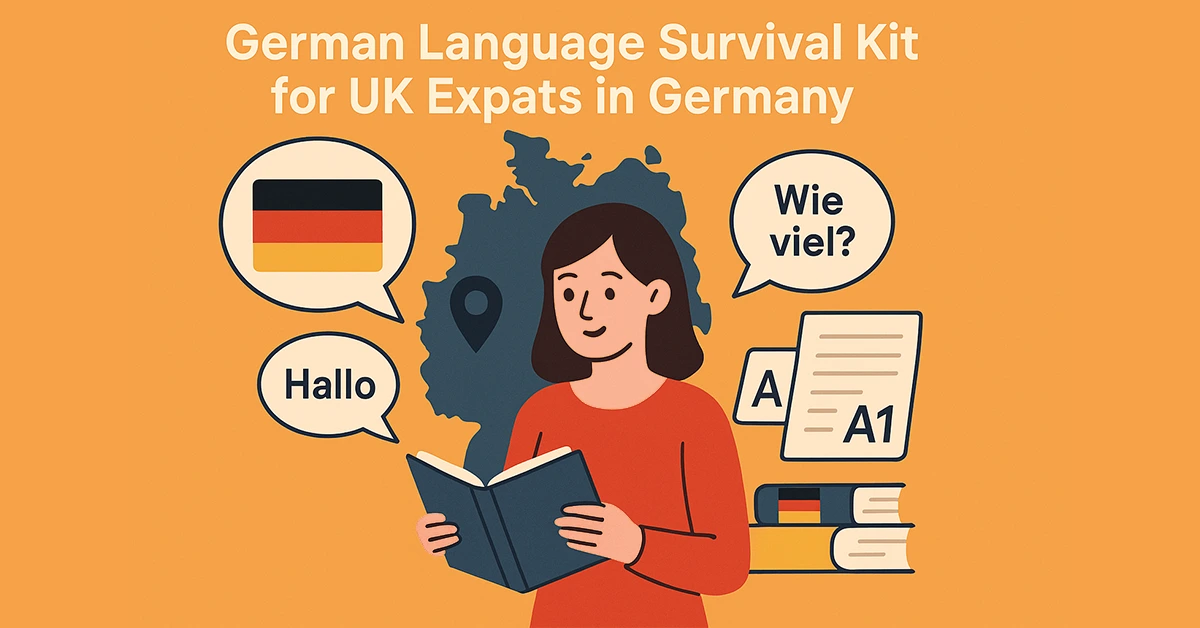
German Survival Kit for UK Expats in Germany
Learn essential German phrases, vocabulary, and survival tips for UK expats in Germany. This complete language kit helps you handle daily life with confidence.
-
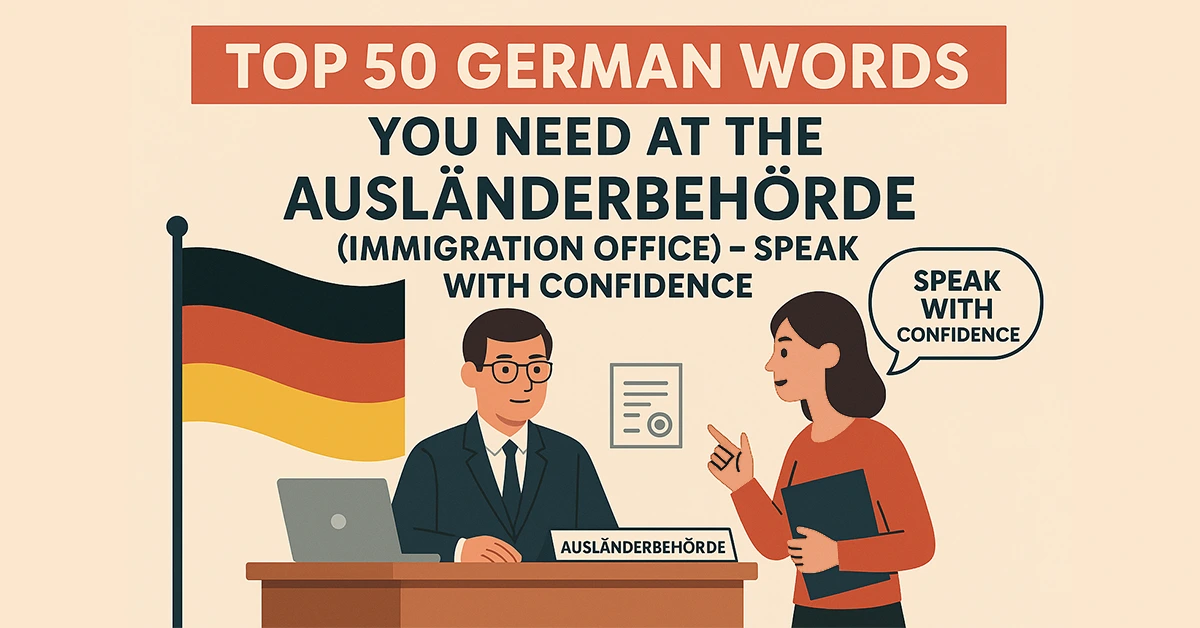
Top 50 German Words for the Ausländerbehörde – Speak Confidently
Learn the top 50 German words and phrases you need at the Ausländerbehörde (immigration office) in Germany. Speak confidently and handle your appointment with ease.
-
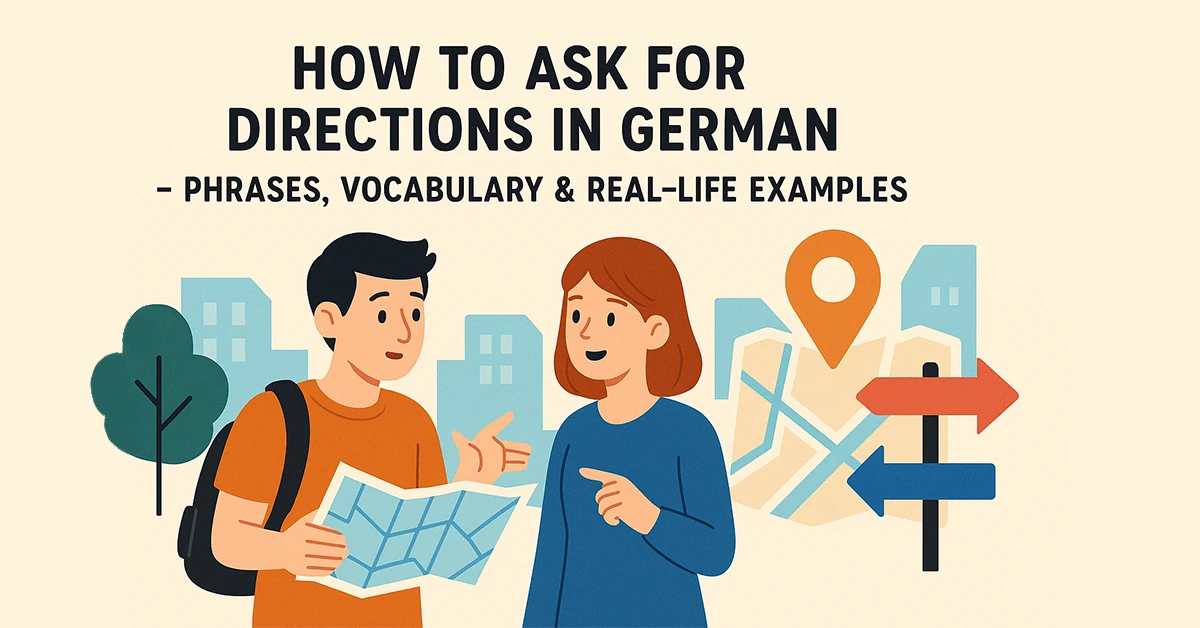
How to Ask for Directions in German – Key Phrases & Examples
Learn how to ask for directions in German with essential phrases, vocabulary, and real-life dialogues. Master polite questions, landmarks, and direction words.
-
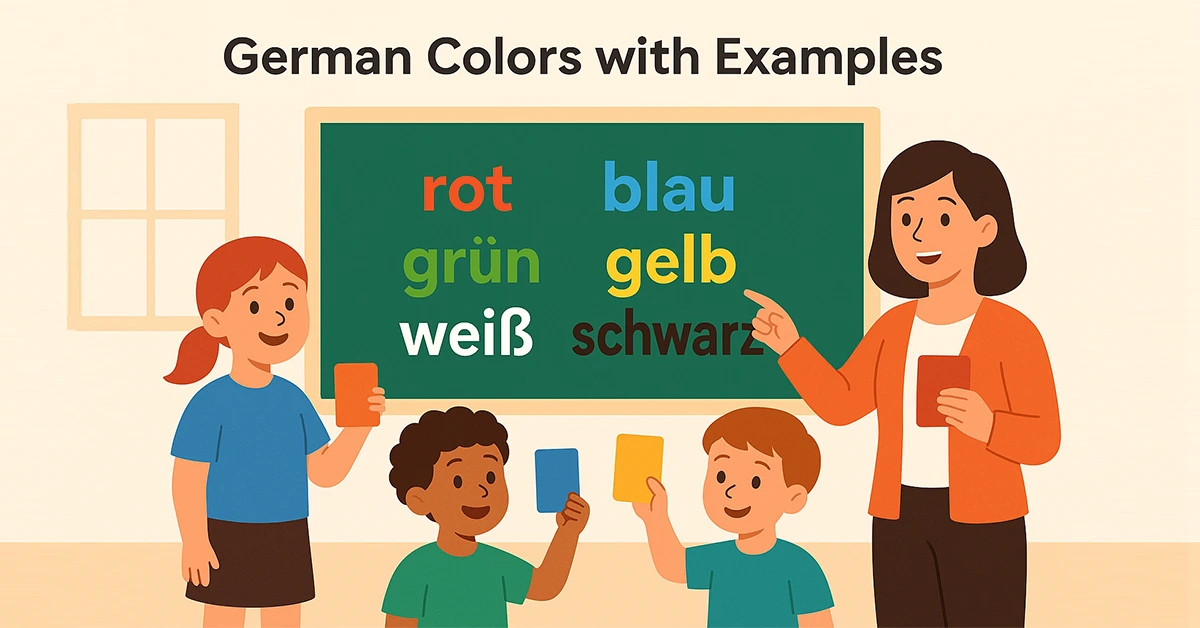
German Colors – Learn All Color Names + Free PDF Guide
Learn all German color names from basic to advanced in one place. Includes grammar tips, real-life examples, and a free PDF for easy learning.
-
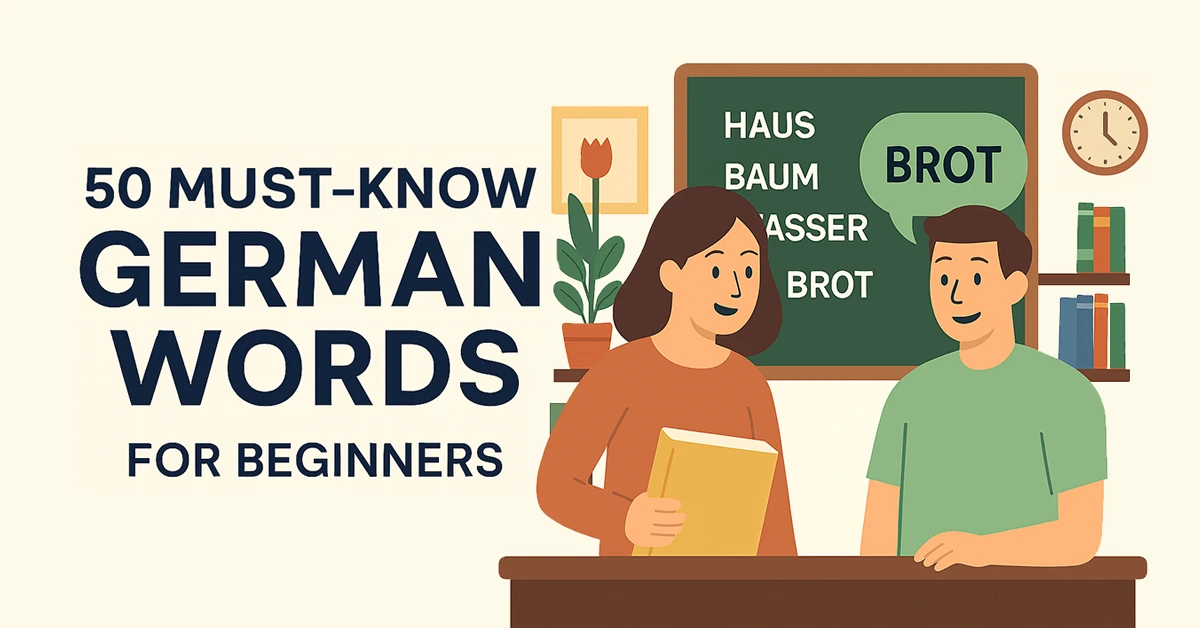
50 Must-Know German Words for Beginners
Learn the 50 most essential German words for beginners with meanings, pronunciation tips, and examples. Start speaking German today with this simple guide.